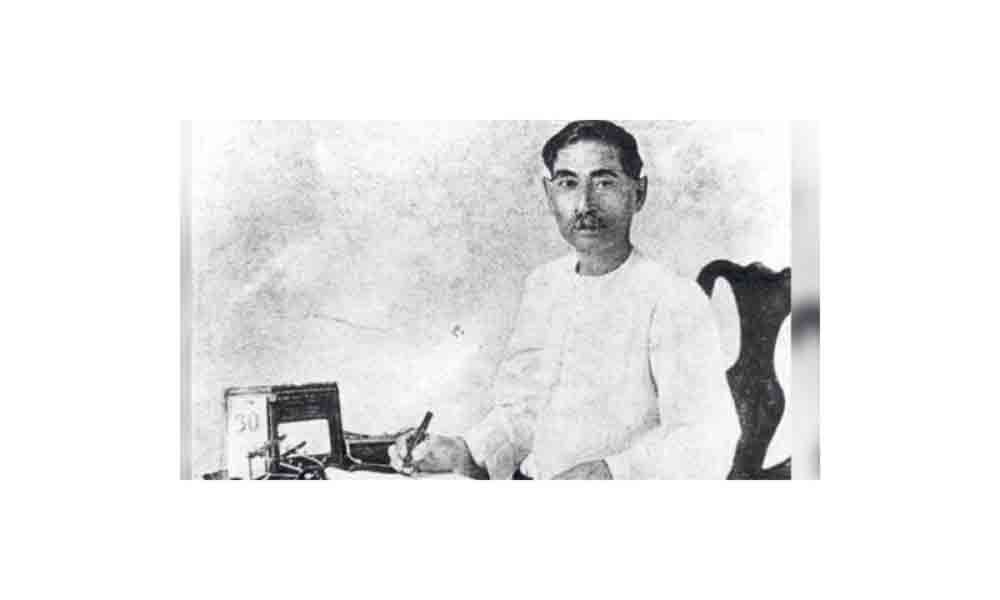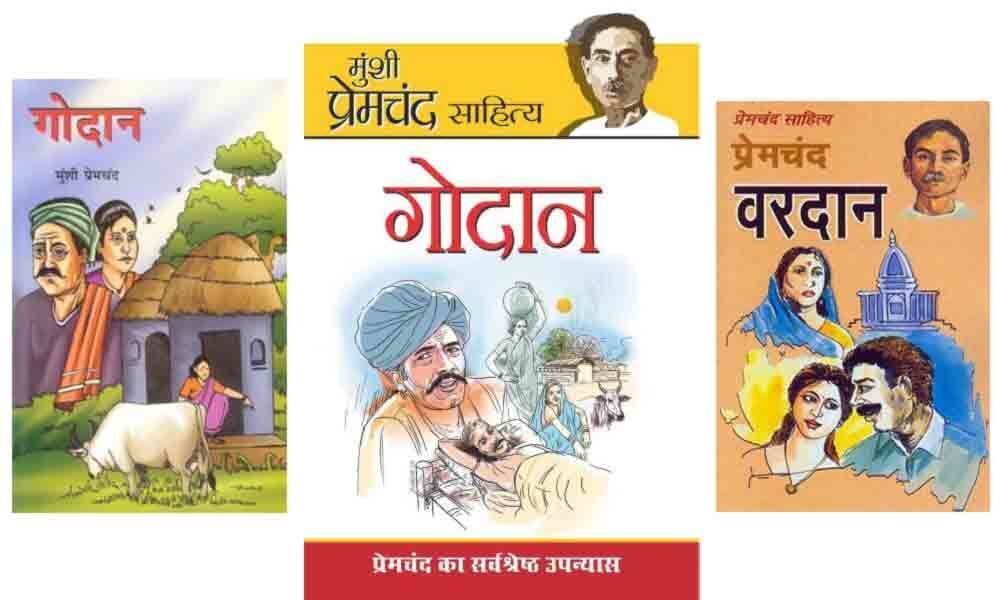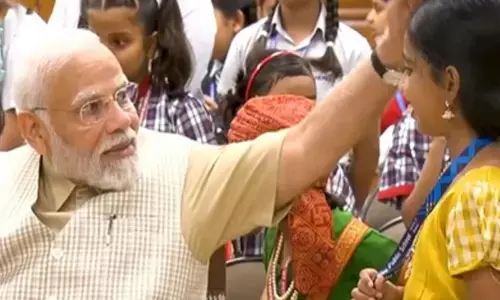A true chronicler of mankind's predicament
In his magnum opus, Aristotle gives credence to the belief that ‘Art and Literature’ have cathartic and therapeutic purposes.
In his magnum opus, Aristotle gives credence to the belief that 'Art and Literature' have cathartic and therapeutic purposes. When the intellectuals' dwell on the purpose of art and literature, two divergent schools with their thoroughly dichotomous standpoint emerge on the literary canvas. Acknowledging the social accountability of the authors, one school asserts that art is for the sake of life whereas the proponents of the other school are of the opinion that art is primarily for the sake of art only.
Certainly, the writers have the autonomy to tread upon the paths of their own choice and follow or negate the set canons laid down by the eminent thinkers and erudite philosophers. Like Friedrich Nietzsche, who remarks that there is no art for art's sake, Munshi Prem Chand has produced his art and literature for the sake of life only. Not wallowing in his personal pains and sorrows, Premchand lays bare the underbelly of our sordid society and makes us see its festering wounds through the prism of Marxism in his famed novels like 'Godan', 'Nirmala' and more three hundred poignantly riveting short stories. Though he was born on July 31, 1880, and passed away 83 years ago on October 8, 1936, his works still remain relevant in our contemporary times.
They say that classic is a work, which never loses its appeal as it always has a lot more to say in each age. Likewise, due to his literary classics, Premchand is considered one of the greatest fiction writers in Hindi, who gravitates the readers with the same intense magnetic pull till today. His three hundred stories and thirteen novels are the classics in their own way, as they shed a flood of light on the gamut of human emotions of love, compassion, brutality, deceit and patriotism. Dipping his quill in the ink Munshi Premchand wrote in Hindi and Urdu and enriched the literature of both of the languages.
At one with a noted critic Harish Trivedi, it would be quite pertinent to aver that Premchand had a deep affinity with the common man and his natural sympathies poured out towards the marginalised and downtrodden section of the society. Reading his novels like 'Godan' and 'Nirmala' firms our conviction in his crusade against the privileged upper classes which felt no qualms of conscience while brazenly exploiting the poor. Does the same gruesome scenario not prevail in modern-day India till date? The divide between the haves and have nots which Premchand lambasts through the heart-rending portrayal of class struggle in many of his works still remains a big blot on the face of our society. As a man of visionary ideas, he comes from the Progressive Writers' Association of which the writers like Mulk Raj Anand and Faiz Ahmed Faiz were also the integral parts. The Progressive Movement in literature was launched at a convention in Lucknow in the year 1936, which was presided over by none other than but Munshi Premchand. Munshi ji was in a way the harbinger of this progressive movement based on the tenets of Marxism and Socialism. This revolution in Literature spans about half a century and spread like wildfire in the whole of the sub-continent. Apart from political reasons, the concept of socialism emerged as a new method that the idealists and mavericks like Munshi Premchand took recourse to with the view of trouncing the arch enemies of communism. Keeping in view his deep propensity towards Marxism and Socialism, critics began to call Munshi ji 'an enlightened human socialist'.
Unlike the conventional model of Socialism, his Socialism has never been dogmatic; it successfully adapts to the needs of the times. The way he satirically portrays the bloodsucker landlords and the blatant exploitation of the deprived strata of society aptly makes him the stalwart ideologue of Progressive ideas. Trivedi opines that no writer before him in Urdu or Hindi, and possibly other Indian languages, had delineated the lives of underdogs, untouchables and marginalised sections with such depth and empathy. Another perceptive observer Amrit Rai reminds us that throughout his life Premchand did not let go of his unsentimental awareness of the grim realities of rural life, of life at the bottom of the economic scale. Unlike a vast majority of the modern writers who indulge in opulent luxuries but earn all those creature comforts by singing the agony of the poor, Premchand himself lived in abject poverty throughout his life and this is the reason that he is believed to be the most honest accounts about the seamy side of life.
Premchand was also at loggerheads with the priestly class and stood steadfast against the injustices and atrocities they would mete out to the lower classes. For instance, in 'Babaji's Feast', he exposes the greed of a Brahmin, who does not flinch a bit to rob a poor family, and in 'Funeral Feast' he depicts the predatory side of the parasitical Brahmins by whom the hapless women are driven to destitution and suicide.
Undeniably Premchand was a feminist too. Many of his works reveal the predicament of women. He was pained at heart to witness the ghastly spectacle of the suffering of women in a patriarchal, male chauvinistic society. Women were not more than goods and chattels for many a man and they were bound to live their lives as per the whims and fancies of the men on whom they remained dependent. In several of his stories like 'Tuliya', 'Sati', 'The Suicide', 'The Thread of Love', 'Two Friends' and 'The Lunatic Lover', he laments over the plight of women. Therefore, it would be pertinent to hail him as a true chronicler of mankind's predicament.
- The writer is Head of Dept, English Language and Linguistics, Dev Samaj Postgraduate College for Women, Ferozepur.


















